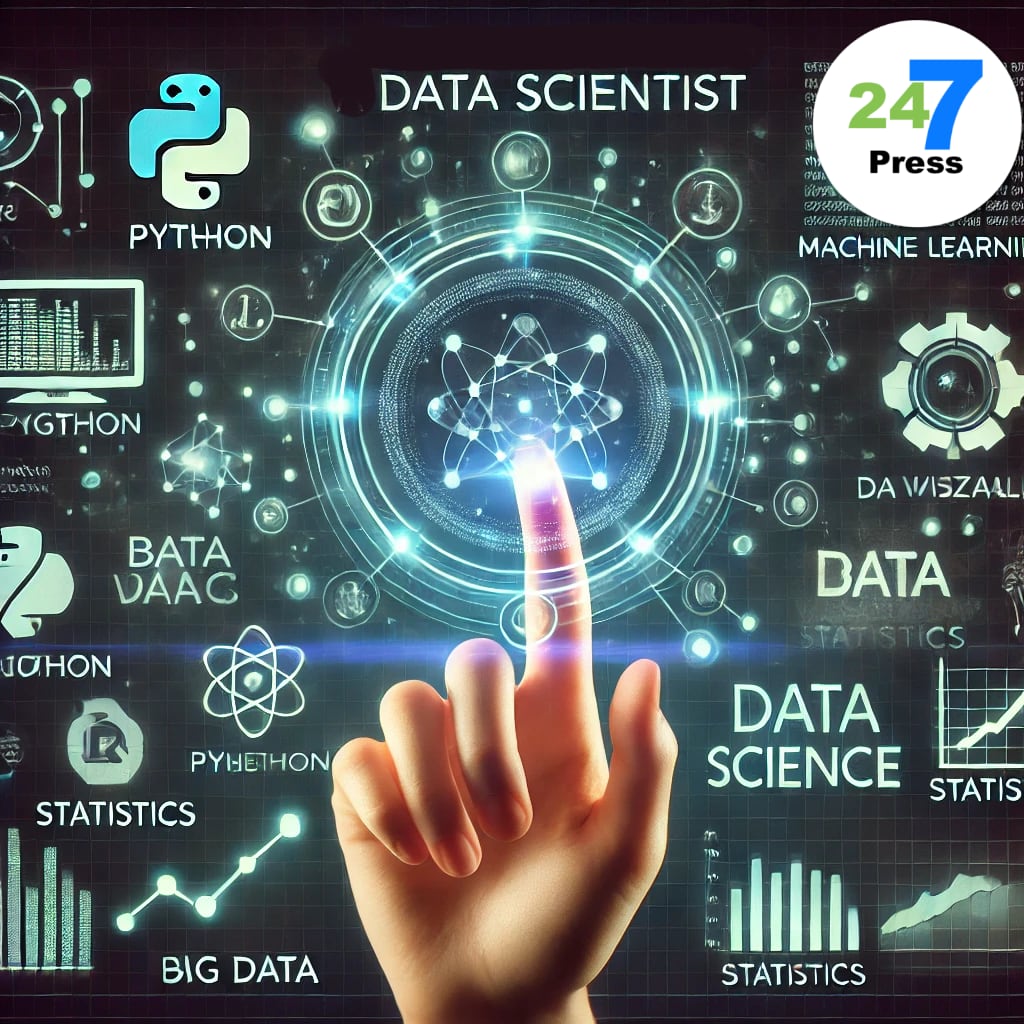
Are you wondering how to become a data scientist? If so, you are not alone. This lucrative field is attracting professionals from various backgrounds, and its popularity is showing no signs of slowing down. By embarking on a journey towards becoming a data scientist, you are opening doors to a realm of opportunities that include high salaries, diverse job roles, and exciting challenges. With the right combination of education, experience, and skills, you can join this dynamic and rewarding profession.
Understanding the Pathway
Data science is a broad field. As such, it can sometimes be difficult to discern the exact pathway towards becoming a data scientist. Essentially, it involves obtaining a solid education in computer science, mathematics, and statistics, followed by acquiring relevant experience in data analysis and machine learning. Let’s explore these in more detail.
Education—The Foundation
A strong educational background sets the foundation for your journey into data science. Most data scientists hold at least a bachelor’s degree in disciplines like Computer Science, Mathematics, Statistics, or related fields. These programs provide a comprehensive understanding of the theoretical and practical aspects of data handling, analysis, and interpretation. Additionally, a master’s degree or Ph.D. in Data Science or a related discipline can further enhance your job prospects and earning potential. Such advanced degrees often offer opportunities to specialize in areas such as artificial intelligence, big data, or business analytics, which are increasingly in demand.
Moreover, many universities and online platforms now offer specialized data science programs and courses. These programs cover a wide range of topics, from data mining and predictive modeling to machine learning and data visualization. Engaging in these courses can help you stay updated with the latest trends and technologies in the field.
Gaining Experience─ The Building Block
In addition to higher education, it is essential to gain experience working with real-world data sets. Internships, part-time jobs, or even voluntary projects can provide invaluable hands-on experience and skills needed in the data science field. Practical experience allows you to apply theoretical knowledge to solve real business problems, thereby enhancing your analytical and problem-solving skills. You can also seek mentorships or participate in hackathons and data science competitions to further improve your skills. These experiences not only boost your resume but also help you build a network of professionals in the industry.
Additionally, contributing to open-source projects or engaging in community forums can be an excellent way to gain practical experience and demonstrate your commitment to the field. These platforms offer opportunities to work on collaborative projects, receive feedback from experienced professionals, and learn new techniques and methodologies.

Skill Set─ The Necessary Tools
There are several essential skills that will serve as tools in your data science toolbox. These include programming languages such as Python or R, which are widely used for data manipulation and analysis. Proficiency in these languages allows you to clean, analyze, and visualize data effectively. Knowledge of databases is also crucial, as data scientists often need to extract and manipulate large datasets. Familiarity with SQL and NoSQL databases can be highly advantageous.
Machine learning techniques are another critical component of a data scientist’s skill set. Understanding algorithms and models enables you to build predictive models and make data-driven decisions. Additionally, proficiency in using data analysis tools like Tableau or Power BI is essential for creating visualizations and dashboards that communicate insights effectively to stakeholders.
Furthermore, soft skills such as communication, teamwork, and problem-solving are equally important. Data scientists must be able to convey complex findings to non-technical audiences and collaborate with cross-functional teams to achieve business goals.
FAQs
Question: How do you become a data scientist without a degree?
Answer: While a formal degree can be beneficial, it is possible to become a data scientist without one. Self-study, online courses, and certifications can provide the necessary knowledge and skills. Building a strong portfolio of projects and gaining practical experience through internships or freelancing can also demonstrate your capabilities to potential employers.
Question: Is a Ph.D. necessary for becoming a data scientist?
Answer: A Ph.D. is not a requirement for most data science positions. However, it can be advantageous for roles that require deep research expertise or for positions in academia and advanced research.
Question: What are the top programming languages for data science?
Answer: Python and R are the most popular programming languages for data science due to their versatility and extensive libraries for data manipulation, analysis, and visualization. Other languages like SQL and Scala are also valuable for handling and processing data.
Summarized Conclusion
Becoming a data scientist involves a hybrid of education, working experience, and skillset growth. With the right preparation and direction, you can successfully navigate your way into this exciting and lucrative field. As the demand for data-driven decision-making continues to grow, data scientists are becoming indispensable in various industries, from finance and healthcare to marketing and technology.
Key Takeaways
- Education lays the foundation for a career in data science.
- Relevant hands-on experience can give you an edge in the field.
- Developing a portfolio showcasing your projects and expertise is valuable.
- Continuous learning and up-skilling are crucial for staying relevant in the evolving field.
If you are asking, “how do I become a data scientist?”, remember─patience and persistence are key. Good luck on your thrilling journey!
Like this article? Then you’ll like this post on FastAPI.





